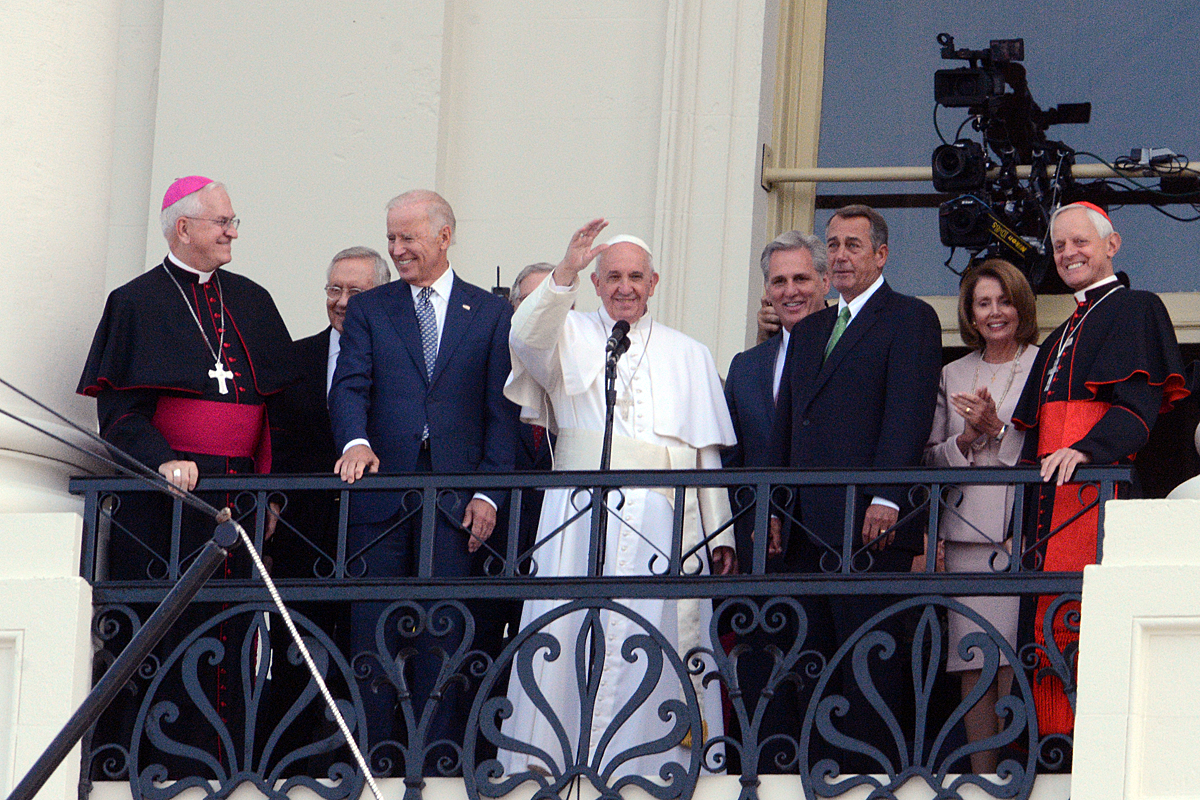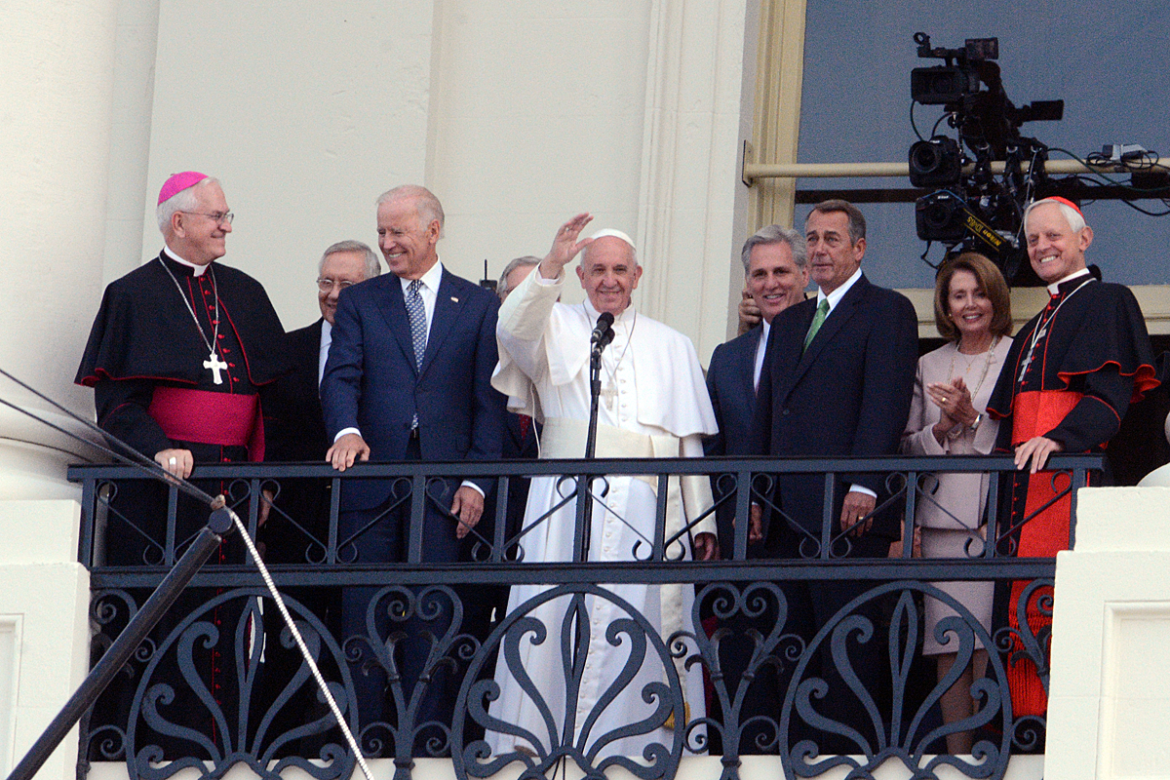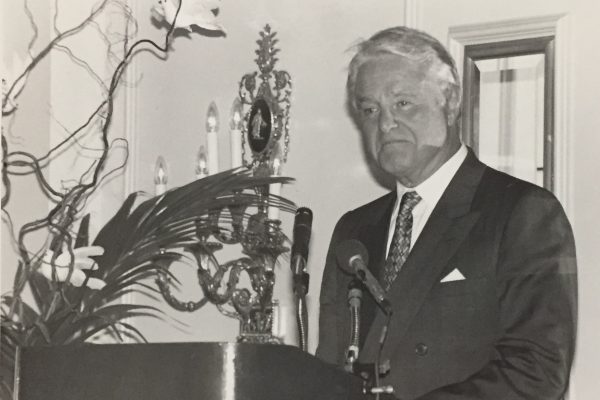 Pope Francis lands on U.S. soil and suddenly the official language of Washington and politics and journalism shifts. I keep hearing words like “joy” and “compassion” and phrases like “He speaks service to power.” The vocabulary is positive, the energy and feeling of hope anywhere around the Pope palpable. Turn on the TV and commentators say the Pope radiates empathy and leadership. His little black Fiat becomes the instant symbol of what he stands for: humility and giving to others. In Washington, hearing that being humble and giving without expecting anything in return is the message of the day? I find this absolutely jarring but wonderful.
Pope Francis lands on U.S. soil and suddenly the official language of Washington and politics and journalism shifts. I keep hearing words like “joy” and “compassion” and phrases like “He speaks service to power.” The vocabulary is positive, the energy and feeling of hope anywhere around the Pope palpable. Turn on the TV and commentators say the Pope radiates empathy and leadership. His little black Fiat becomes the instant symbol of what he stands for: humility and giving to others. In Washington, hearing that being humble and giving without expecting anything in return is the message of the day? I find this absolutely jarring but wonderful.
President Obama had a huge grin when he welcomed the Pope to the White House on Wednesday and listed all the ways “Americans value the role the Catholic Church plays in the strength of America”: feeding the hungry, healing the sick, sheltering the homeless. As a Catholic, I am not at all used to hearing my faith praised. I got up at 4:30 A.M. to brave disorganized security lines at the White House, to bask in the dawn’s early light and wait for hours on the West Lawn with a mere 20,000 others, most dressed up as if they were going to church, reverent and polite. Seeing the U.S. military in all its splendor parading in front of the Pope reminded me of Stalin’s scoff during World War II, “How many divisions has the Pope got?” These days, through Twitter (and social media and the 24-hour news cycle), @Pontifex, with his penchant for the trenchant gesture, has a moral force and sway any world leader would have to acknowledge.
Pope Francis is the third pope I have seen in person. The first was John Paul II, during Holy Week in Rome in 1985, when I was pregnant with my son, Luke, and when my late husband, Tim Russert, was the NBC News executive in charge of overseeing the Today show segment that broadcast Holy Week live with Bryant Gumbel and Jane Pauley. In Rome I was not only privileged to have the Pope bless my womb but also to come back 14 months later to have him raise Luke up in the air in his arms and pronounce him “very nice.” Pope Benedict XVI came to Washington in 2008, when the Nationals baseball stadium was brand new; he said Mass there and held V.I.P. receptions at the Apostolic Nunciature on Massachusetts Avenue. He was remote to most American Catholics, and for a time it seemed that, fairly or unfairly, his unspoken message was an intention to impose an ideological or scriptural litmus test on believers.
Francis is so different. He is the shepherd goading and tending his flock. He used the shepherd analogy multiple times in his speech to the American bishops gathered at St. Matthew’s Cathedral in Washington later that day. The talk—in Spanish with English subtitles—was played on jumbo screens on the grounds of the basilica at Catholic University, while another 20,000 of us patiently waited for him to say Mass and to canonize the Franciscan missionary, Father Junipero Serra (who, by the way, was already basically canonized in public-school history texts as California’s George Washington when I was growing up there). The way to tend to the flock, the shepherd said, was to remember that “the brother or sister we wish to reach or redeem, with the power and closeness of love, counts more than their positions, distant as they may be from what we hold as true and certain.” His most important admonition was, “Remember to keep focused on the core which unifies everything: ‘You did it unto me’” (Matthew 25:40).



